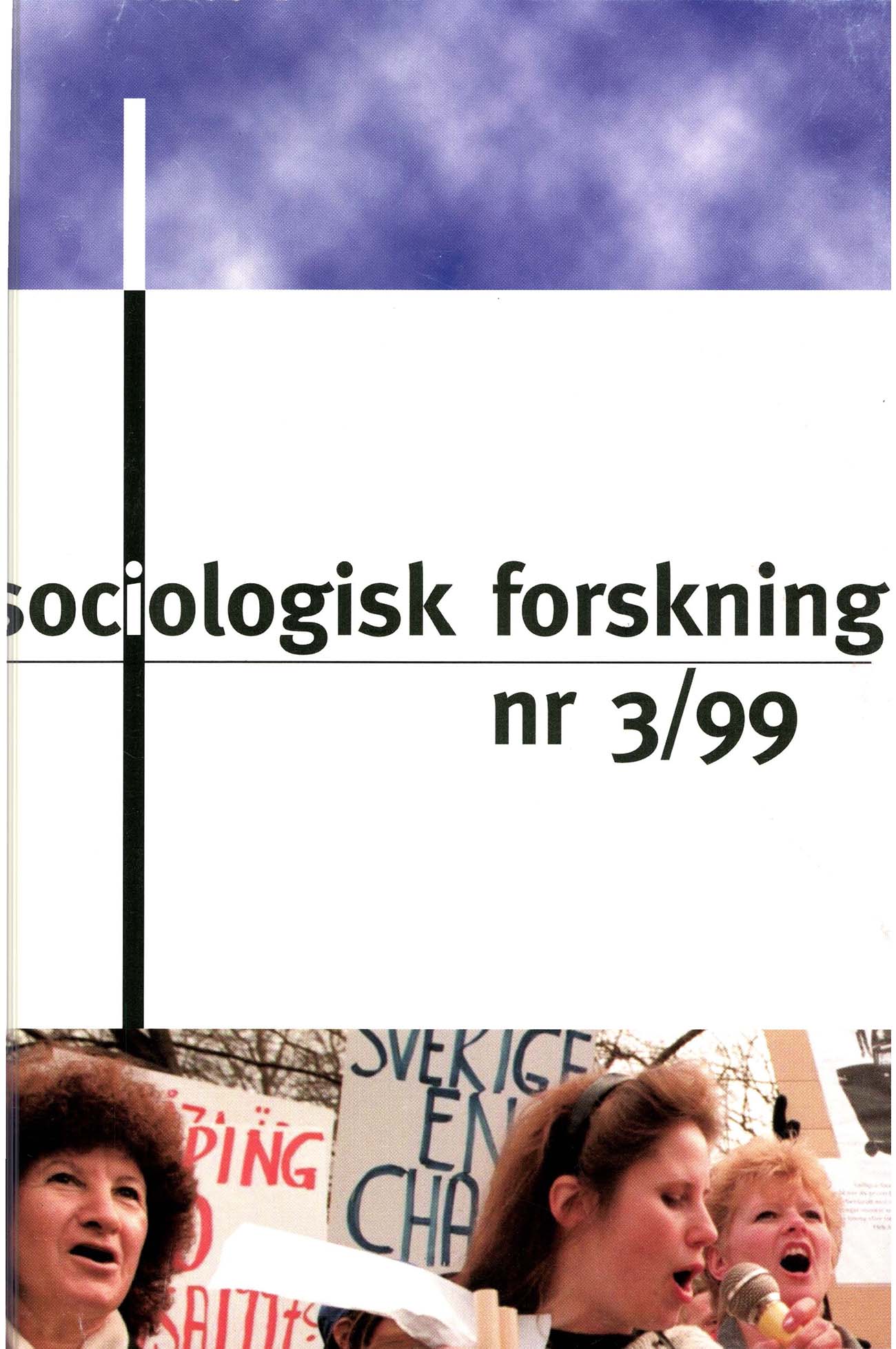Sveriges ekonomiska tillväxt och samhällsforskarnas objektivitet
DOI:
https://doi.org/10.37062/sf.36.18494Abstract
The economic growth of Sweden and the objectivity of social scientists
In an article in Sociologisk Forskning (2/98) Walter Korpi maintains that the claim by Swedish academic economists that Sweden’s economic growth has been slow compared to other rich countries is at odds with the empirical facts. Consequently, unless Sweden has grown slowly, an often cited basis for questioning the Swedish model is invalidated. Korpi also asserts that the discussion reveals a severe objectivity problem among Swedish academic economists. In this article Magnus Henrekson rebuts Korpi's allegations. The available facts show that Sweden was lagging behind relative to a broad aggregate ofother industrialized countries up to 1990, and this tendency is further reinforced if the 1990s is included in the comparison. As a corallary, it is an important task for future research to examine the factors that can potentially explain this unfavorable development. One hypothesis worthy of additional exploration is whether the Swedish model with its large public sector and strongly redistributive policies provides part of the explanation. As regards the objectivity problem in social science research in Sweden, Henrekson argues that, if anything, the discussion of Sweden’s growth problem shows that Walter Korpi is the one who has been lacking in scientific objectivity in this particular instance.
Downloads
Publicerad
Referera så här
Nummer
Sektion
Licens
Allt material i Sociologisk Forskning publiceras med omedelbar öppen tillgång (open access), under Creative Commons-licensen CC BY-NC-ND 4.0.
Allt innehåll i tidskriften är fritt tillgängligt utan kostnad och får för icke-kommersiella syften fritt läsas, laddas ned, kopieras, delas, skrivas ut och länkas. Innehållet får dock inte ändras. När innehållet används måste författare och källa anges. Upphovsrätten till innehållet tillhör respektive författare. Inga publiceringsavgifter tas ut.





